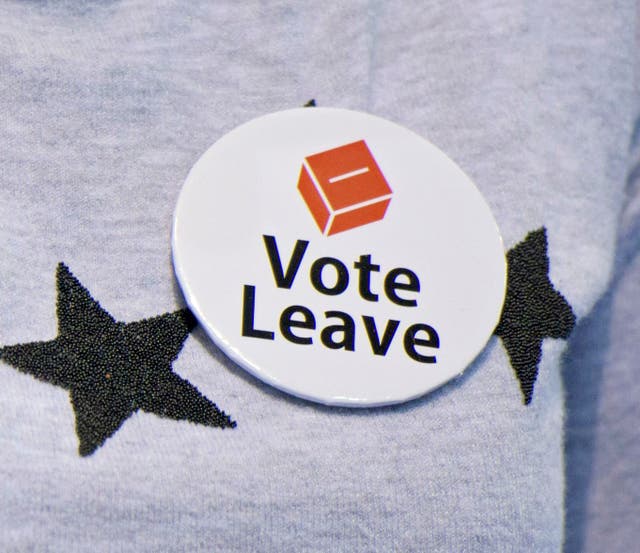
Britain’s electoral system is in “dire need” of reform following allegations of foul play during the EU referendum, MPs have warned.
A group of 45 politicians said the Electoral Commission (EC), the UK’s democracy watchdog, needed overhauling and beefing up in order to guarantee elections in the digital age were free and fair.
One MP said the penalties the EC was currently able to hand out were “laughable” and viewed “simply as the cost of doing business”.
The group suggested police should be given powers to investigate breaches of electoral law that should be punishable with unlimited fines.
A number of revelations in recent months have seen action being taken against members of the official Brexit campaign, Vote Leave, and pro-Leave groups Leave.EU and BeLeave.
However, the size and nature of the sanctions meted out have raised questions about the strength of rules in place to protect democracy, the MPs said.
“It’s clearer now than ever before that our electoral system is not fit for purpose and in dire need of reform,” the group said.
Their concerns were laid out in a letter to Commons speaker John Bercow, who chairs the Speaker’s Committee on the Electoral Commission.
The signatories, who include Labour and Lib Dem MPs, along with Green MP Caroline Lucas, recommended four reforms to help prevent electoral abuse. They are:
1. Hand the EC’s powers of investigation and prosecution to police and remove limits to fines.
2. Require campaigns to report expenditure online in a similar way to MPs’ expenses.
3. Prohibit transfers from a designated campaign to satellite campaigns.
4. Regulate, or possibly pause, paid political advertising during an election period.
Stephen Kinnock, the Labour MP who organised the letter, said British democracy was “under attack by a mixture of foreign influence and abuses of our laws”.

“The Government must act immediately otherwise abuse will continue and trust will decline – more dark money and dark data will flood the system and buy influence,” he said.
The MP for Aberavon said the EC was an “analogue regulator in a digital age” that was in “desperate need of reform”, adding: “(Its) fines are laughable and seen simply as the cost of doing business.”
In June, the EC said “urgent action” was needed by the UK’s governments and parliaments, along with social media companies, to improve transparency around how voters are targeted online.
Earlier this week, Vote Leave was fined £61,000 and was accused of failing to declare money it spent with controversial data firm Aggregate IQ.
The EC said an investigation found “significant evidence” of joint working between Vote Leave and youth Brexit group BeLeave, which was founded by student Darren Grimes.
Mr Grimes was fined £20,000 and referred to the Metropolitan Police along with David Halsall, the responsible person for Vote Leave, “in relation to false declarations of campaign spending”.
The action came after Leave.EU was fined a record-equalling £70,000 and its chief executive Liz Bilney referred to police in May over its spending.
Vote Leave said the Electoral Commission’s report contained “a number of false accusations and incorrect assertions that are wholly inaccurate and do not stand up to scrutiny”.
Mr Grimes said the fine was “entirely disproportionate and unjustified” and he “did nothing wrong”.


Comments: Our rules
We want our comments to be a lively and valuable part of our community - a place where readers can debate and engage with the most important local issues. The ability to comment on our stories is a privilege, not a right, however, and that privilege may be withdrawn if it is abused or misused.
Please report any comments that break our rules.
Read the rules hereLast Updated:
Report this comment Cancel